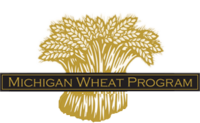Michigan wheat growers have opportunity to vote on continuation of wheat check-off through April 2
Lansing, Mich. (March 22, 2021) – Michigan wheat growers should have received their ballots through their US mailbox for the official vote on the 5-year continuation of Michigan’s wheat check-off program. While the Michigan Wheat Program is one of the newest check-off programs in the state, it has been in existence for 10 years. This will be its third vote by the state’s wheat farmers.
The wheat check-off was voted in during the summer of 2011 by a margin of 54% (both popular vote and production voted). Its first board of directors was appointed by the Governor in late 2011 and began meeting at the end of that year.
The first continuation vote in 2016 passed by a much wider margin of more than 80% of the production and popular vote. The board felt its mission was supported by growers, and continued to build on the success of its first five years.
The goal was and remains: To increase yields and decrease quality issues for farmers growing the golden grain in the Great Lakes State.
Wheat farmers interested in reviewing the accomplishments of the wheat check-off and its nine-member board have a variety of information resources primarily on the organization’s website at www.miwheat.org or the Michigan Wheat Program YouTube channel:
- One resource highlighting the work and accomplishments is the Decade of Dedication video featuring a presentation by Executive Director, Jody Pollok-Newsom. Check under the “What’s Hot” menu on the left side of the website home page.
- Seven years of Annual Reports are found on the website under the About tab, with the newest highlighted in the “What’s Hot” box.
- The Winter 2021 series of six wheat wisdom webinars and 16 other Summer Field Day or Winter Annual Meeting videos and handout materials are all found under the Education tab and then the Previous Events tab.
- Six years of Wheat Wisdom e-newsletters (75 issues) of current wheat events and production articles are found under the Newsroom tab.
- In addition, the Michigan Wheat YouTube Channel has 93 videos that provide 48 hours of wheat-tastic learning.
“Key accomplishments for our board over the past 10 years have included addressing grower needs by targeting about $3.5 million to nearly 150 research projects,” said current Michigan Wheat board chairman Bill Hunt, wheat farmer of Davison. “In addition, we have made a $700,000 donation to MSU to put toward a land purchase at the Saginaw Valley Research & Extension Center to ensure long-term wheat research, and another $250,000 for essential modern field and lab research equipment to be used by our team at MSU.”
“Another important area the Michigan Wheat Program financially supports is “boots on the ground” or positions at MSU that are vital to better on-farm research and bringing those results to our farmers,” Hunt said. “The Michigan Wheat Program collaboratively put funding towards wheat breeder Dr. Eric Olson and recently-retired MSU Extension agent Martin Nagelkirk. Currently MSU wheat specialist Dennis Pennington is funded by a 50/50 partnership with MSU and Nagelkirk works on special projects through a contract basis.”
The Michigan Department of Agriculture and Rural Development (MDARD) mailed wheat referendum continuation ballots for voting through April 2, 2021. Wheat farmers are advised to carefully follow the directions in voting and return your ballots in the envelopes provided. Ballots must be postmarked on or before April 2, 2021 for your vote to be counted. Growers who do not receive a ballot or if they have questions, should contact the department by calling toll-free 800-292-3939. Eligible producers who have not receive a ballot may also request one by sending an e-mail to GuardiolaJ1@michigan.gov.
The Michigan Wheat Program is funded by nearly 8,000 farmers who grow wheat in 50 of Michigan’s 83 counties. The Michigan Wheat Program board seeks to promote the state’s wheat industry by funding and supporting the strategic priorities of wheat farmers working with input suppliers, seed producers, millers, end users and consumers. Research on wheat production practices and grower education has been a continued focus for the organization. For more information on the Michigan Wheat Program visit its website at www.miwheat.org.
